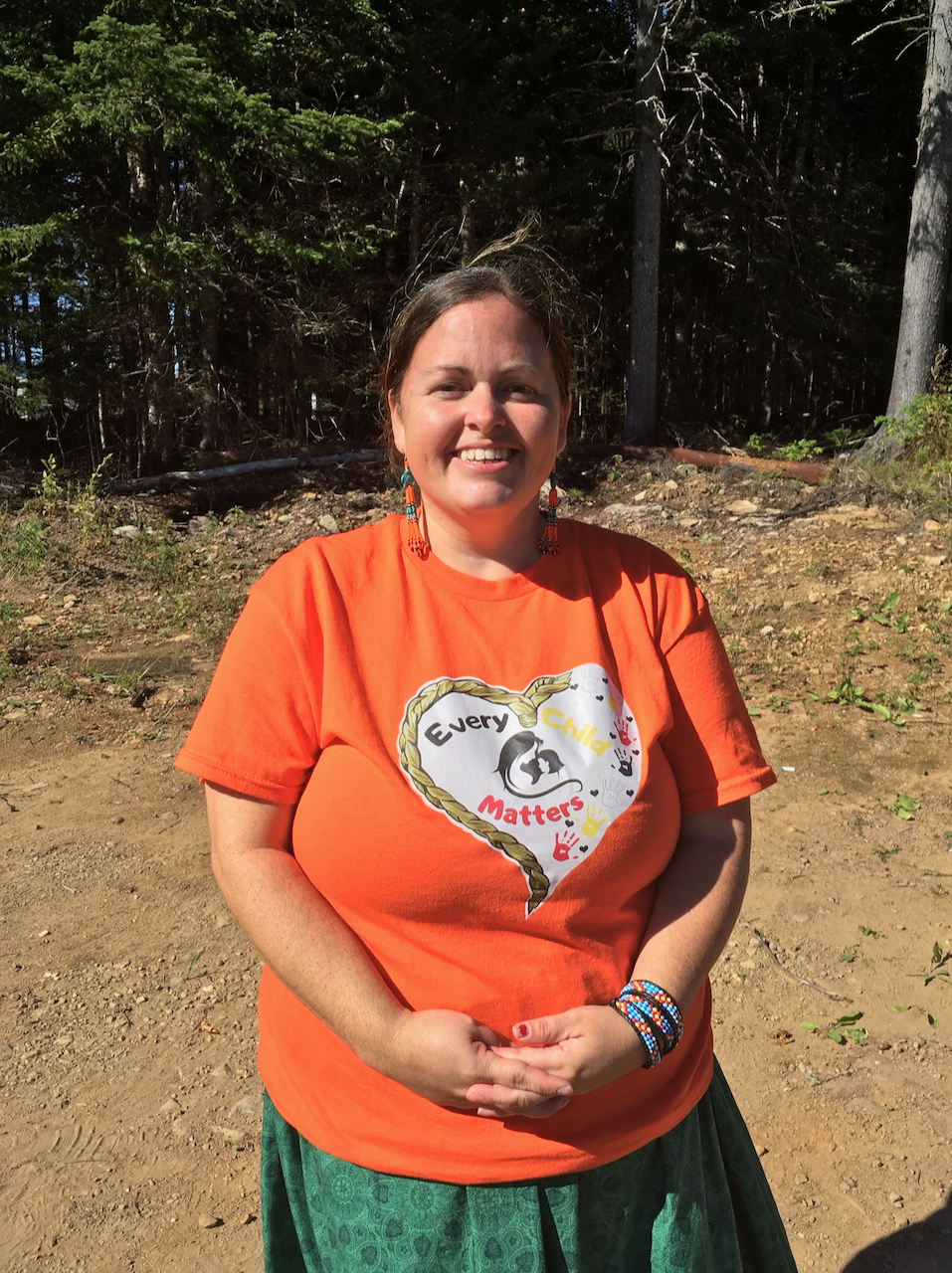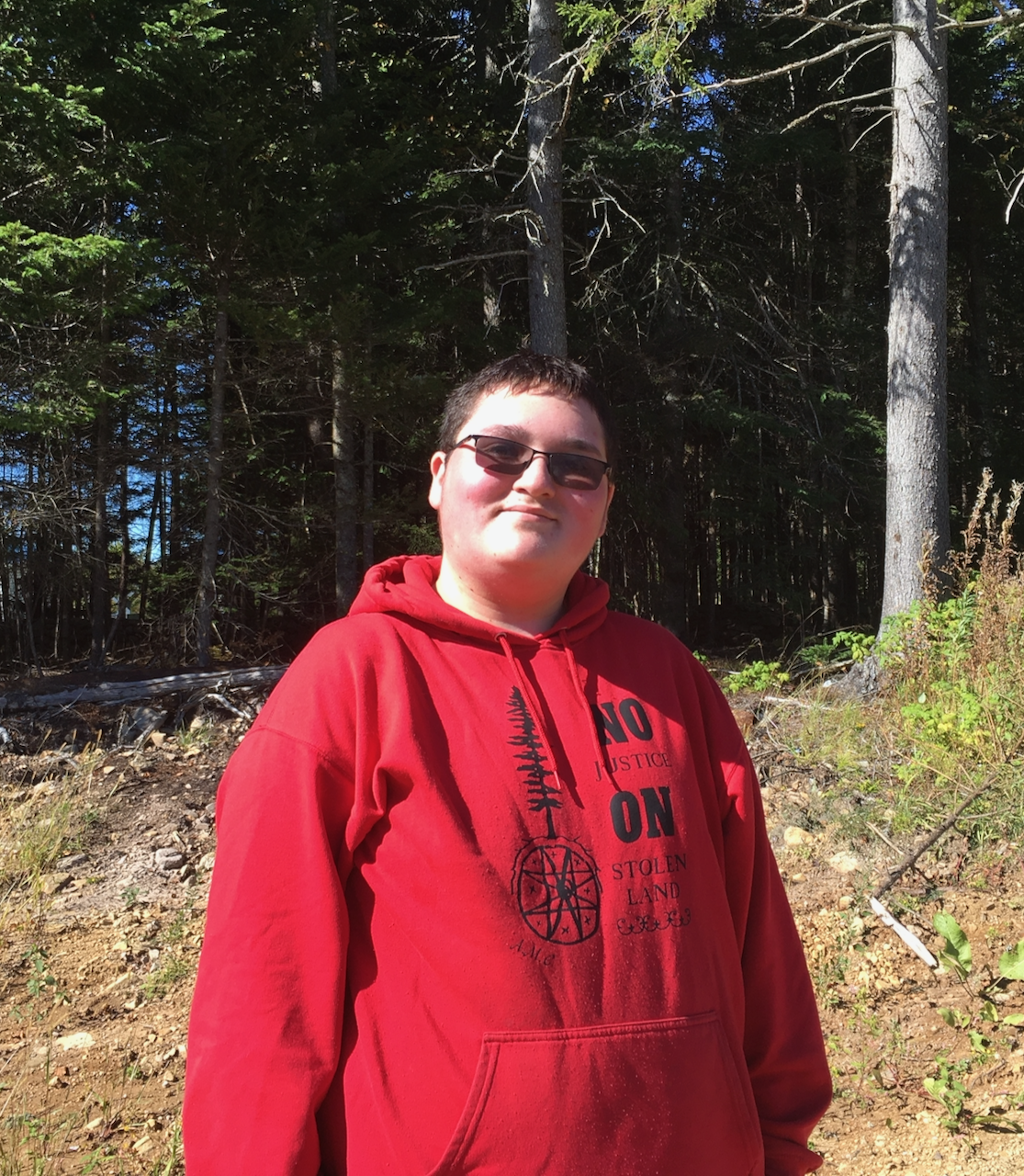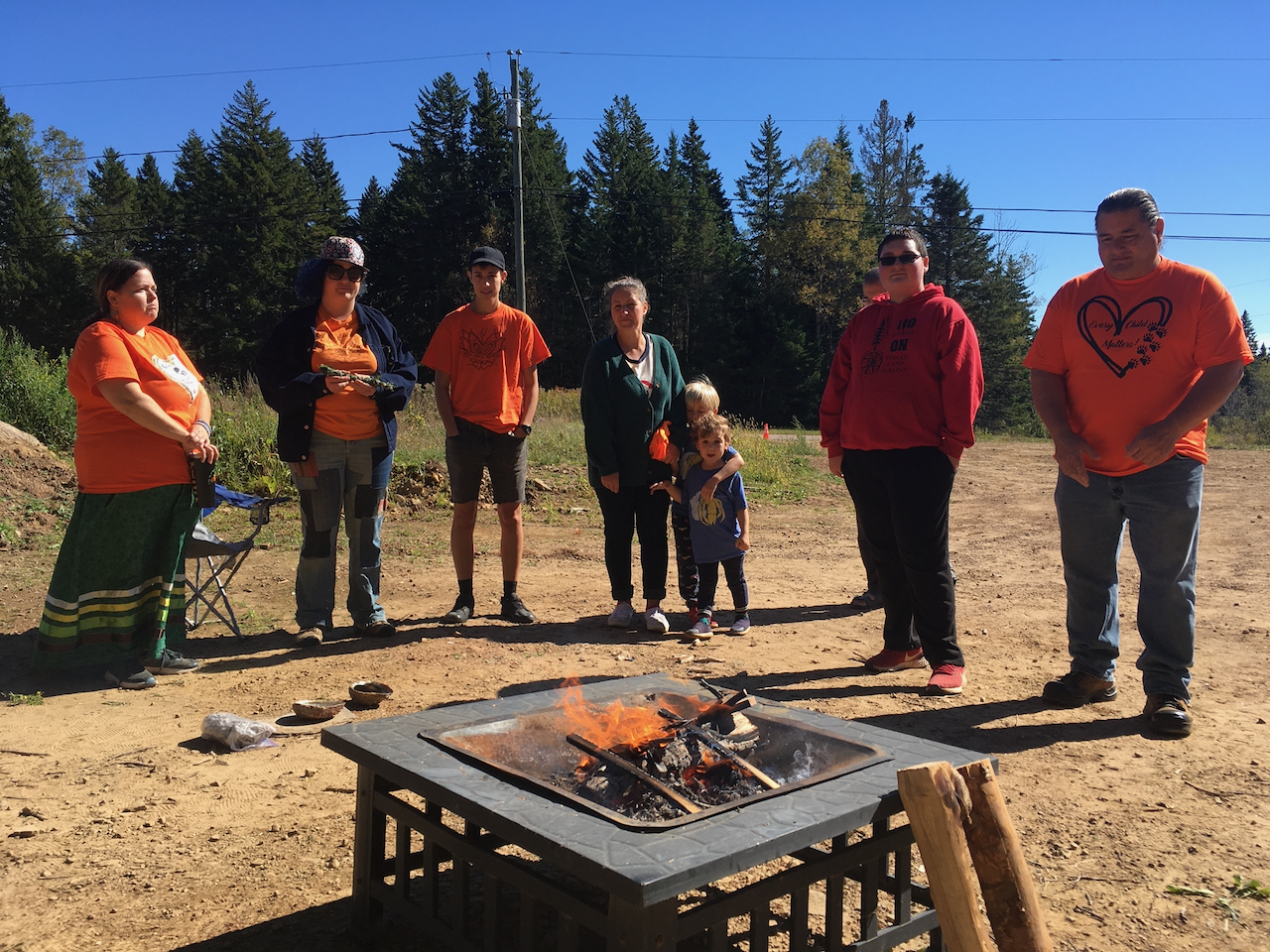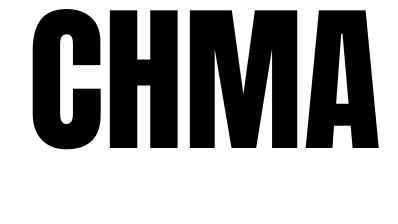
Canada’s second National Day for Truth and Reconciliation came and went last Friday, and thanks to Nicole Porter, people in the Tantramar region had a chance to reflect and learn.
Mi’kmaq knowledge keeper Nicole Porter and her son Zachary Dubé, a firekeeper, invited people to a sacred fire on Cherry Burton Road. CHMA stopped by to talk with Porter and Dubé, and some of the people who made their way to the fire:
Porter spent the whole day speaking to comers, helping them feel comfortable engaging with the fire and pointing them to ways to learn more, such as the nearby Fort Folly community walking trails which feature interpretive panels. Porter says a steady stream of families came to the fire, as well as larger groups such as daycares and the Mount Allison soccer teams.
“It’s good to see the public coming out and wanting to educate themselves,” says Porter. “We’re just so honoured that we can share the culture with every one.”
16-year-old Zachary Dubé tended the fire, and took the time to explain the customs around it to people who came, many of whom took the opportunity to offer some tobacco to the fire.

“It’s just like when you’re praying to God,” says Dubé. “There is no right or wrong way to do it. You just speak your mind or your heart.”
“Once you put that tobacco offering into the fire, the fire will then burn tobacco, and then it will take that smoke or your prayers from that tobacco up to the spirit world where the spirits and the ancestors will listen to that prayer,” he says.
Dubé is a firekeeper trained to tend many types of sacred fires, including those for sweat lodges, full moon ceremonies, or the passing of loved ones.
“The sacred fire that we’re doing here today is for inviting spirits and honouring the spirits of the children of the residential schools that have sadly passed away,” says Dubé. “We’re asking their spirits to join us here today, we’re honouring them, giving thanks for them for healing us, and protecting this land.”

Porter says that learning the truth of what happened and why is the first step towards actual reconciliation. “In order to really reconcile what has happened to Indigenous people,” says Porter, “others need to learn the truth.”
And with the truth, policies rooted in the same racism that beget the residential schools can begin the change. “There’s been a lot of racism built into the Indian Act,” says Porter. “So we want to work to change that.”
She points to the the peace and friendship treaties between the Mi’kmaq, Wolastoqey, and Canada. “Those are still binding contracts between nations,” says Porter. “We want them to be honoured and recognized, and moving forward, be able to share the land together and be at the table to talk about these issues that come up.”
She says reconciliation will really be fulfilled when Indigenous people have a voice and a role in the stewardship of New Brunswick’s land. “When it comes to clearcutting forests, we want to be there to have a voice and to say, you know, you’re affecting the wildlife, you’re affecting the trees, when you’re spraying insecticides on this Crown land,” says Porter. “We want to be able to have that voice at that table.”
